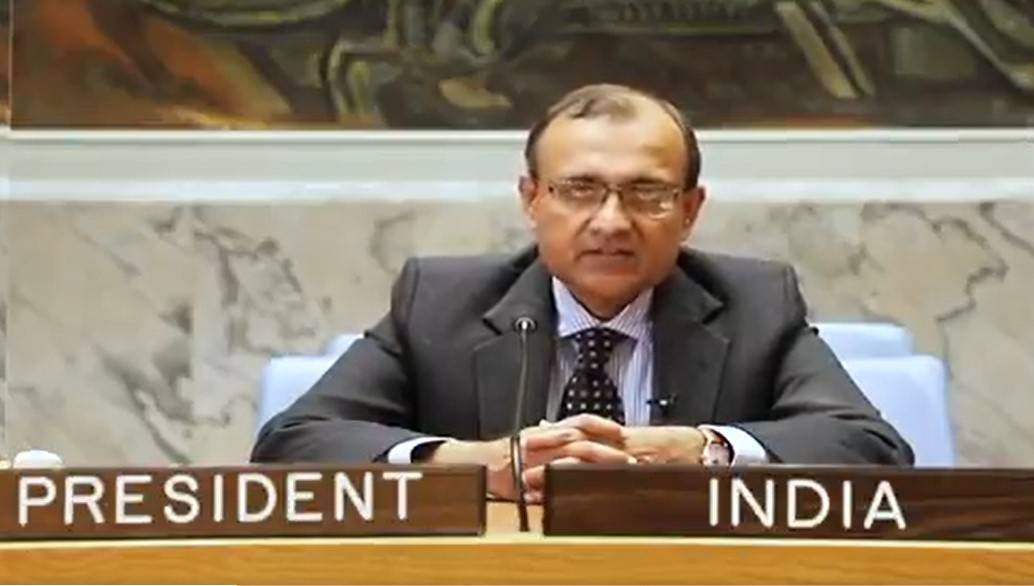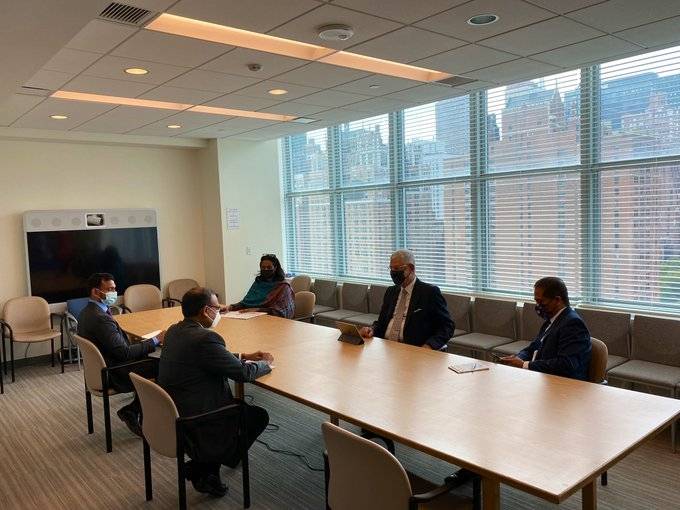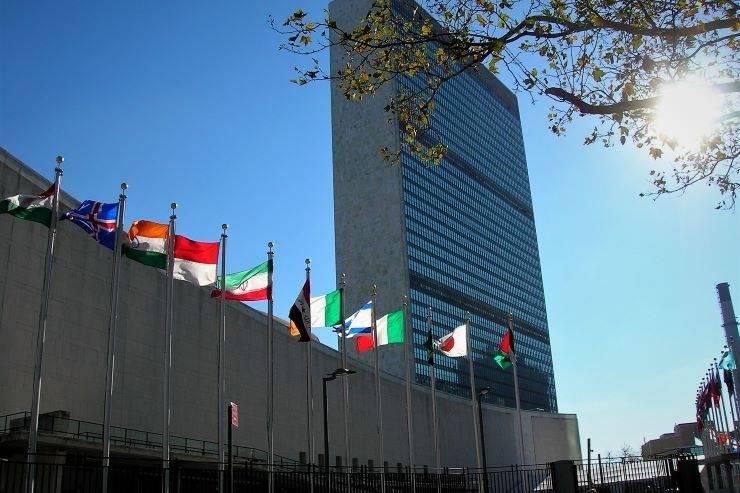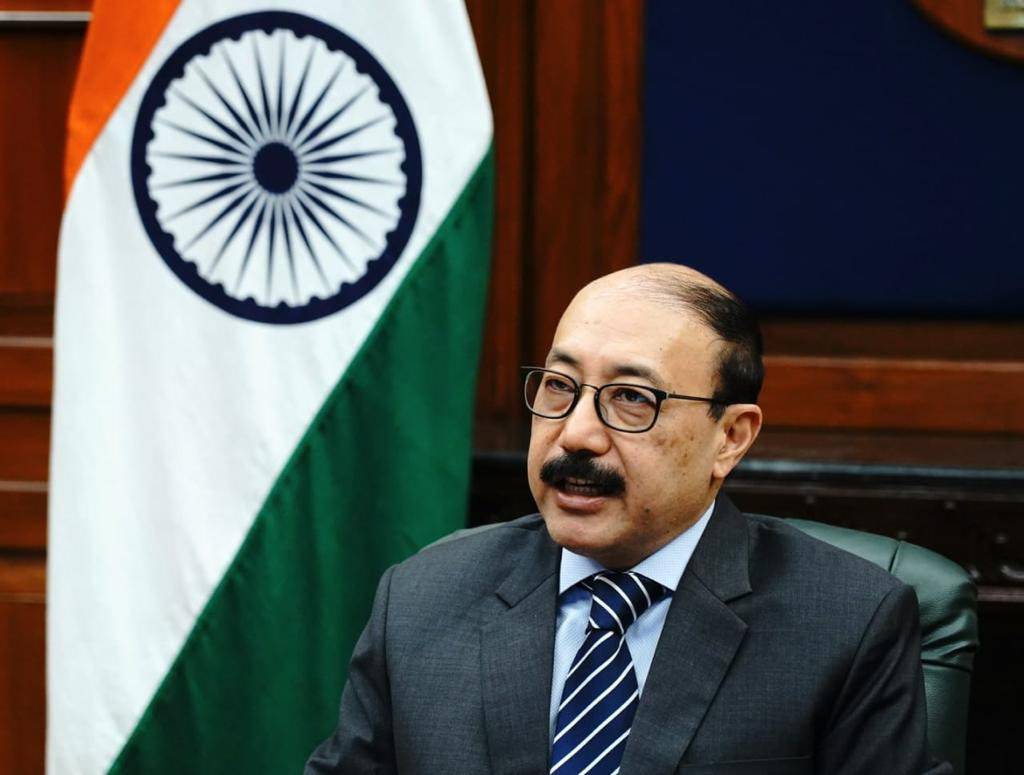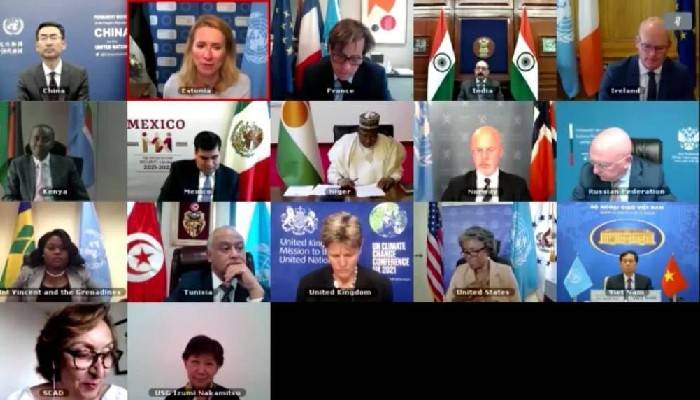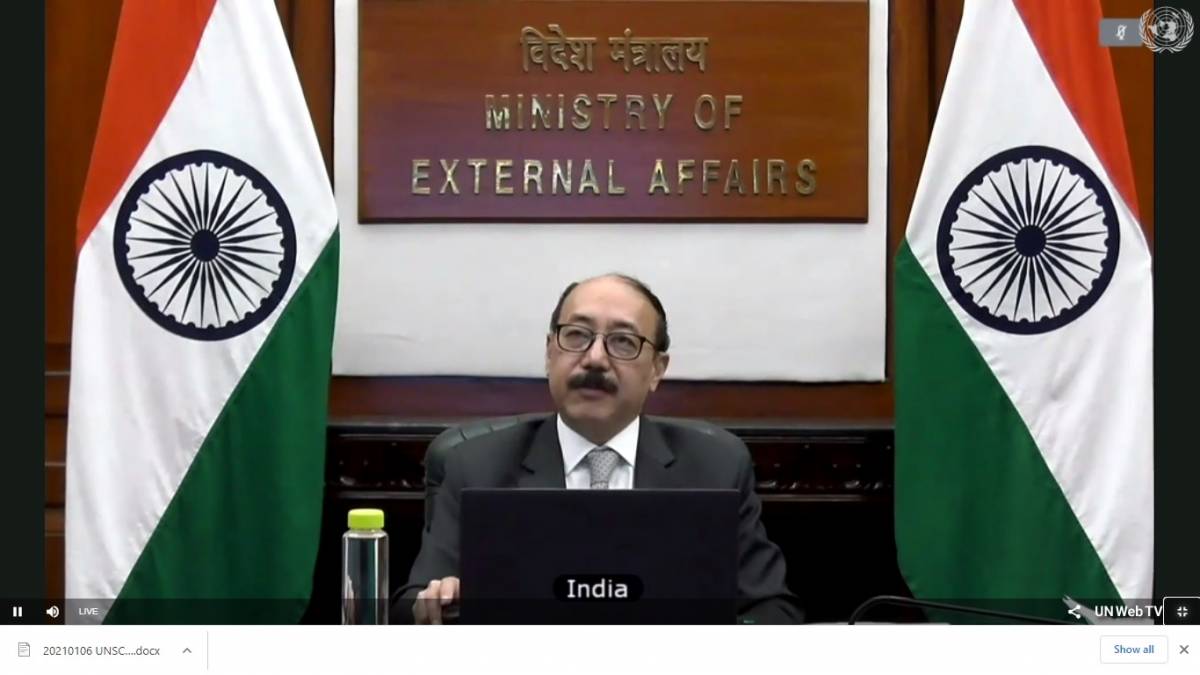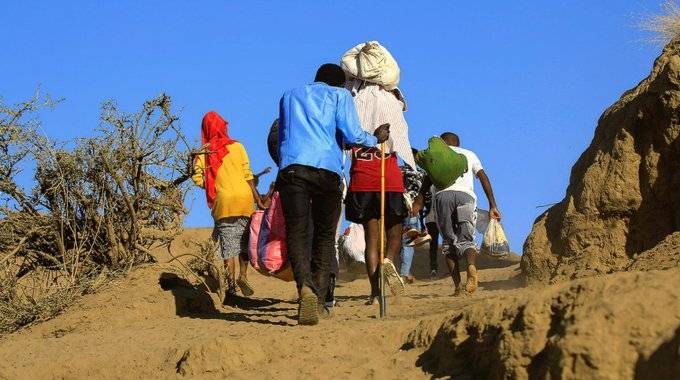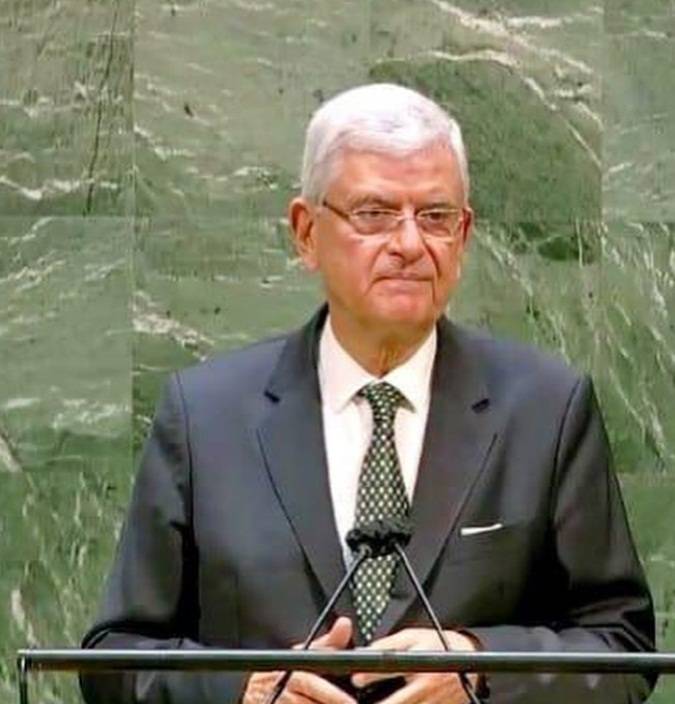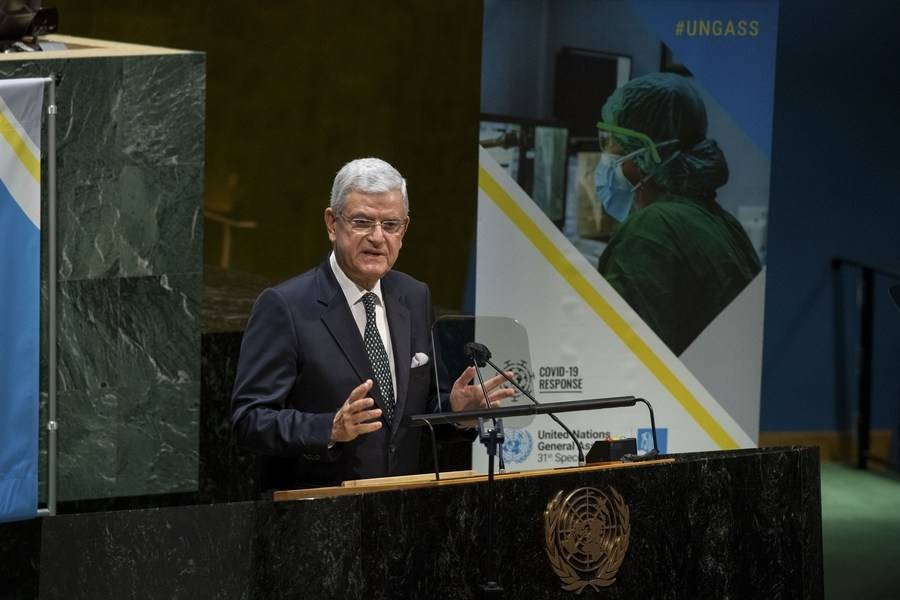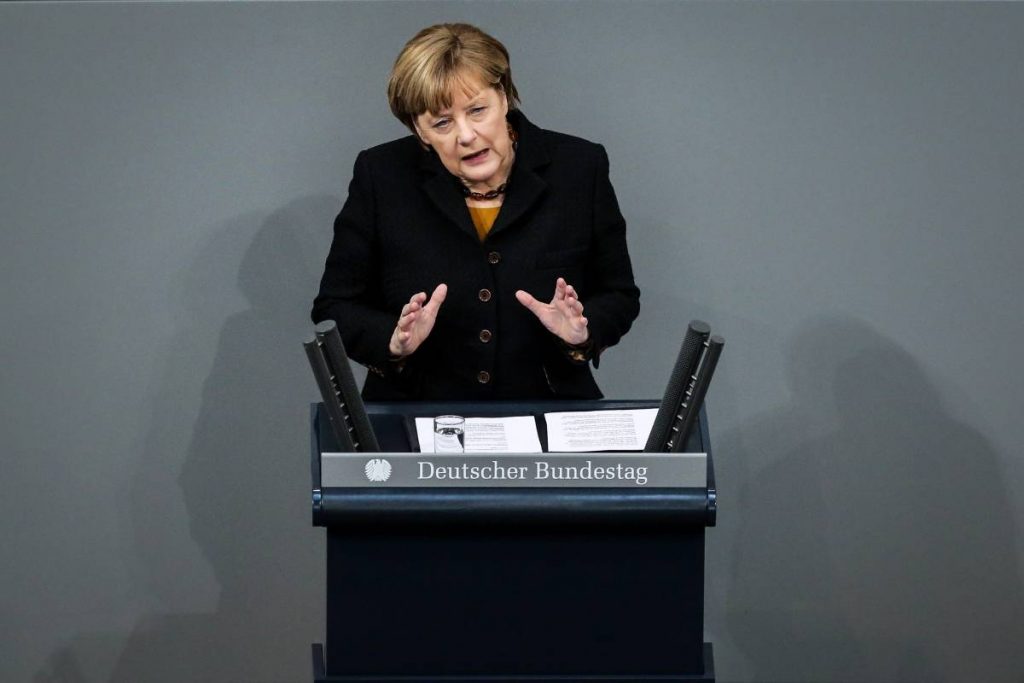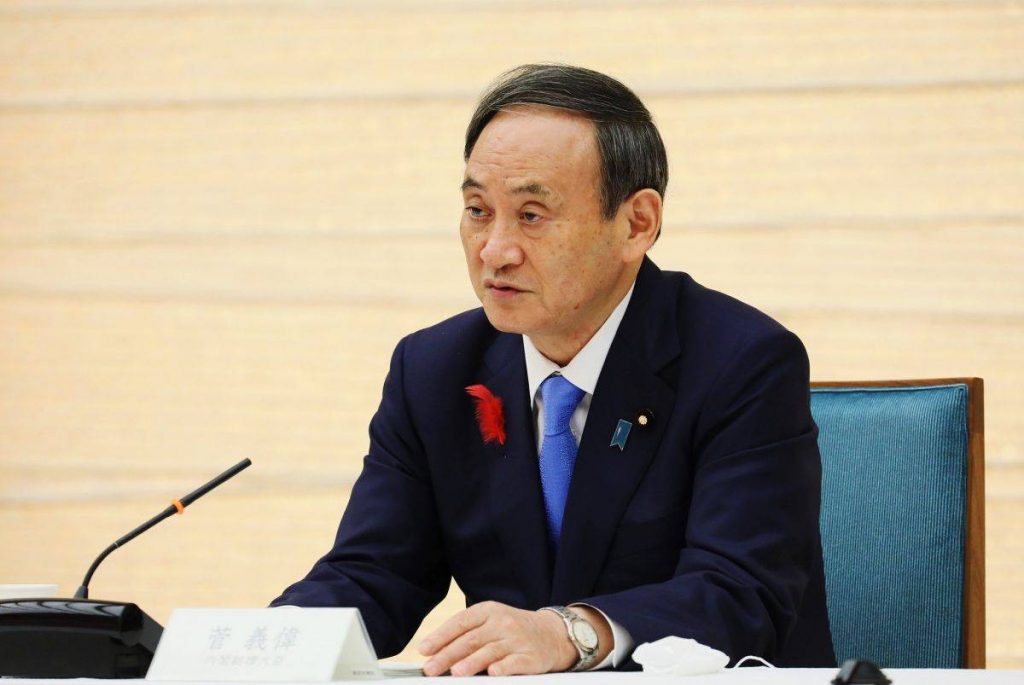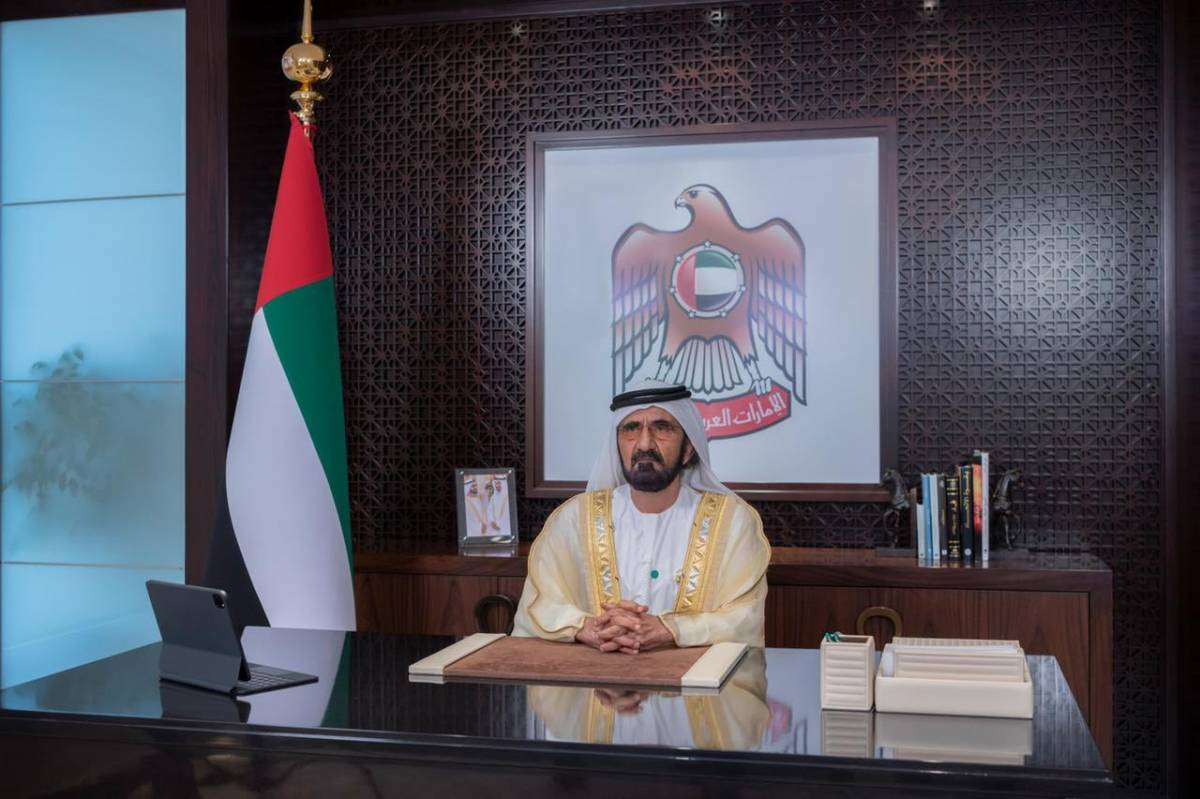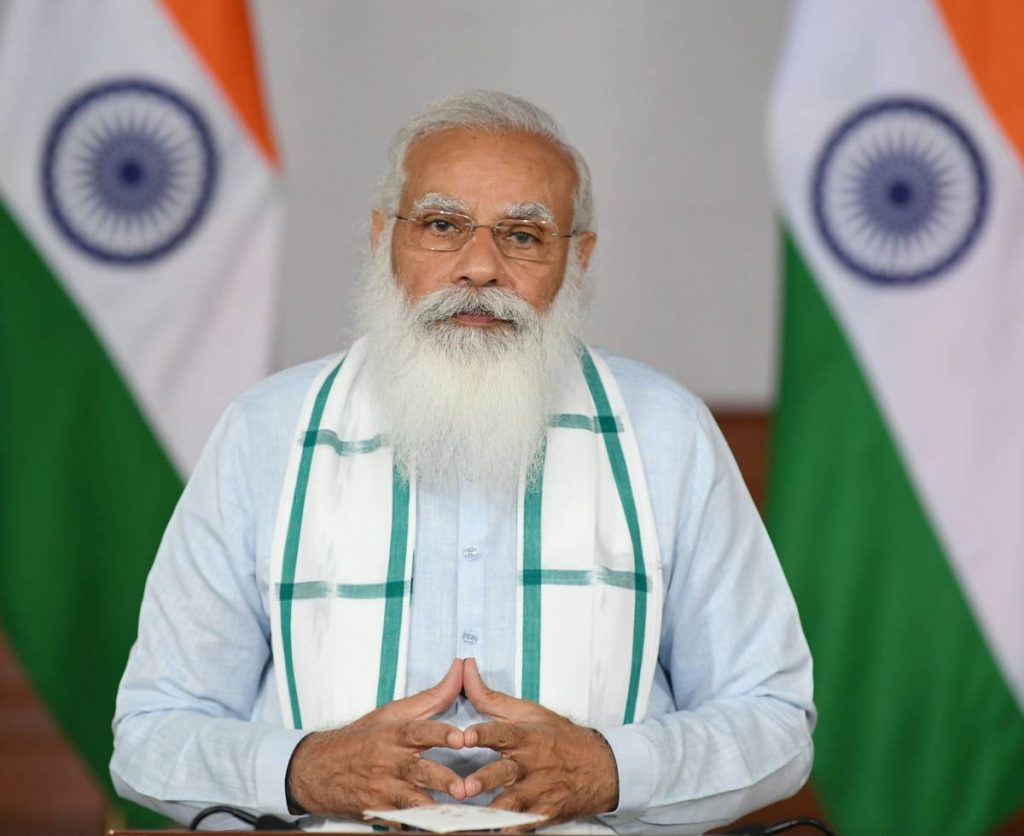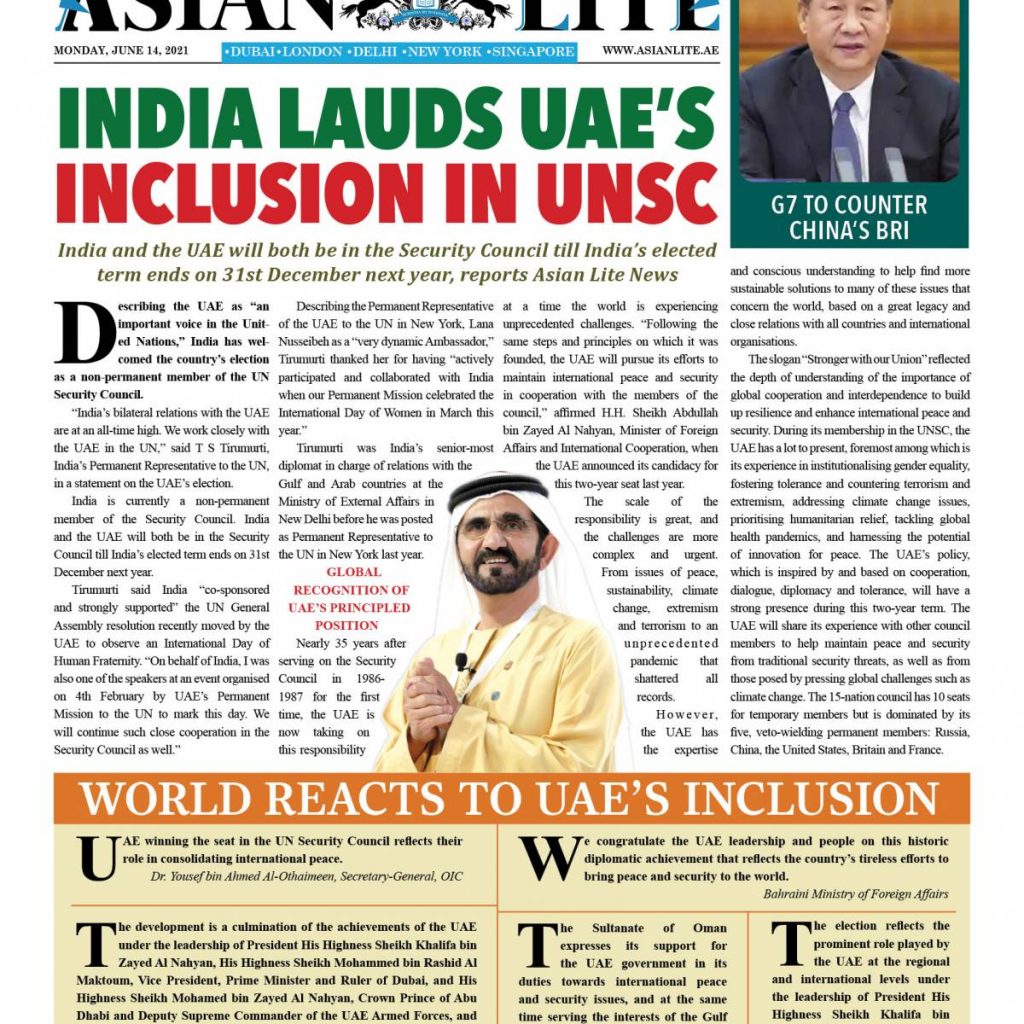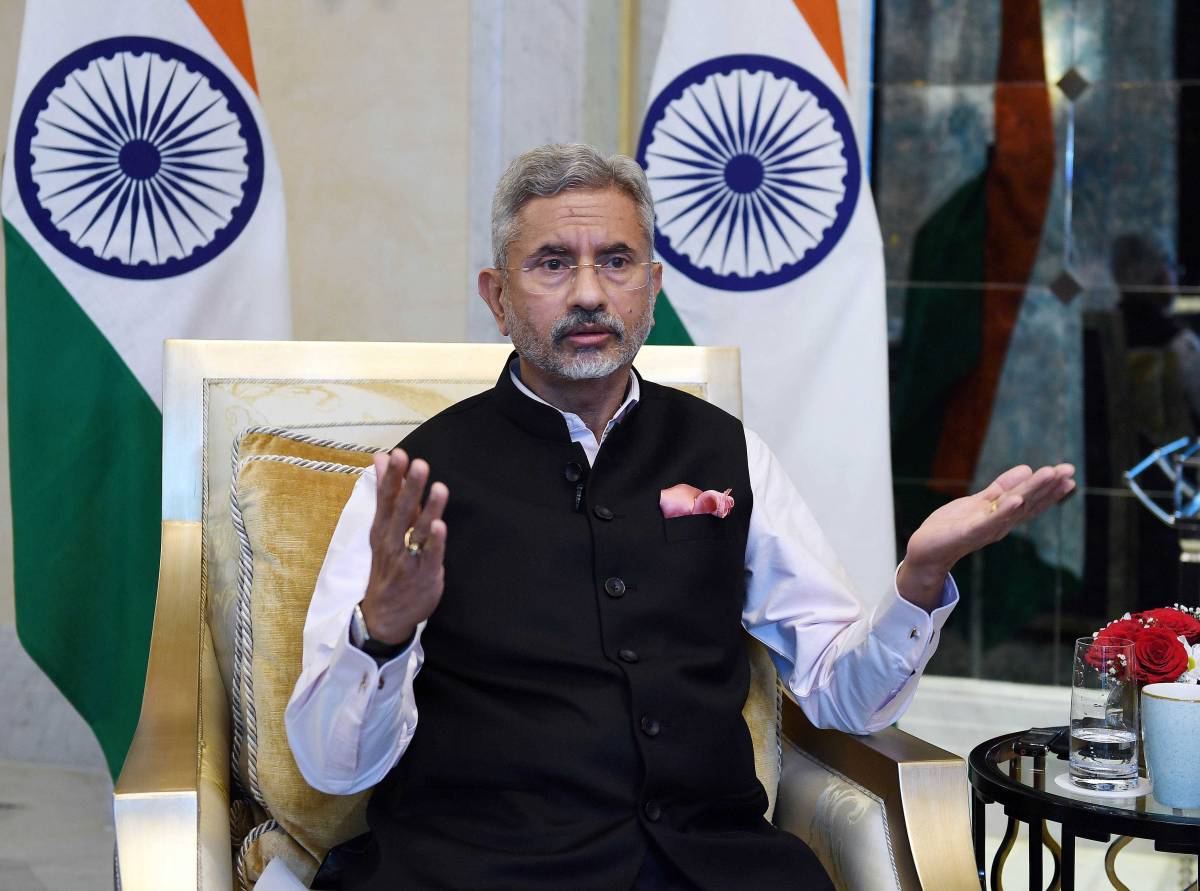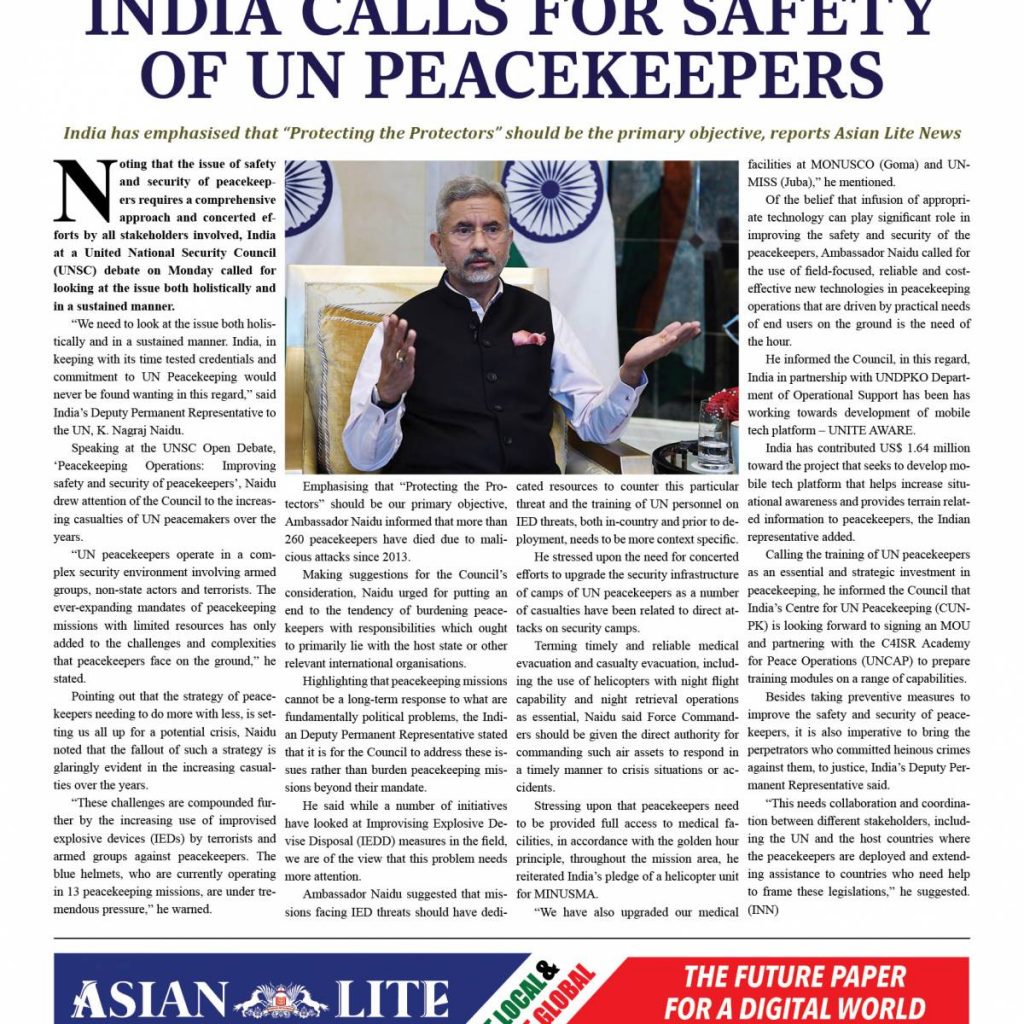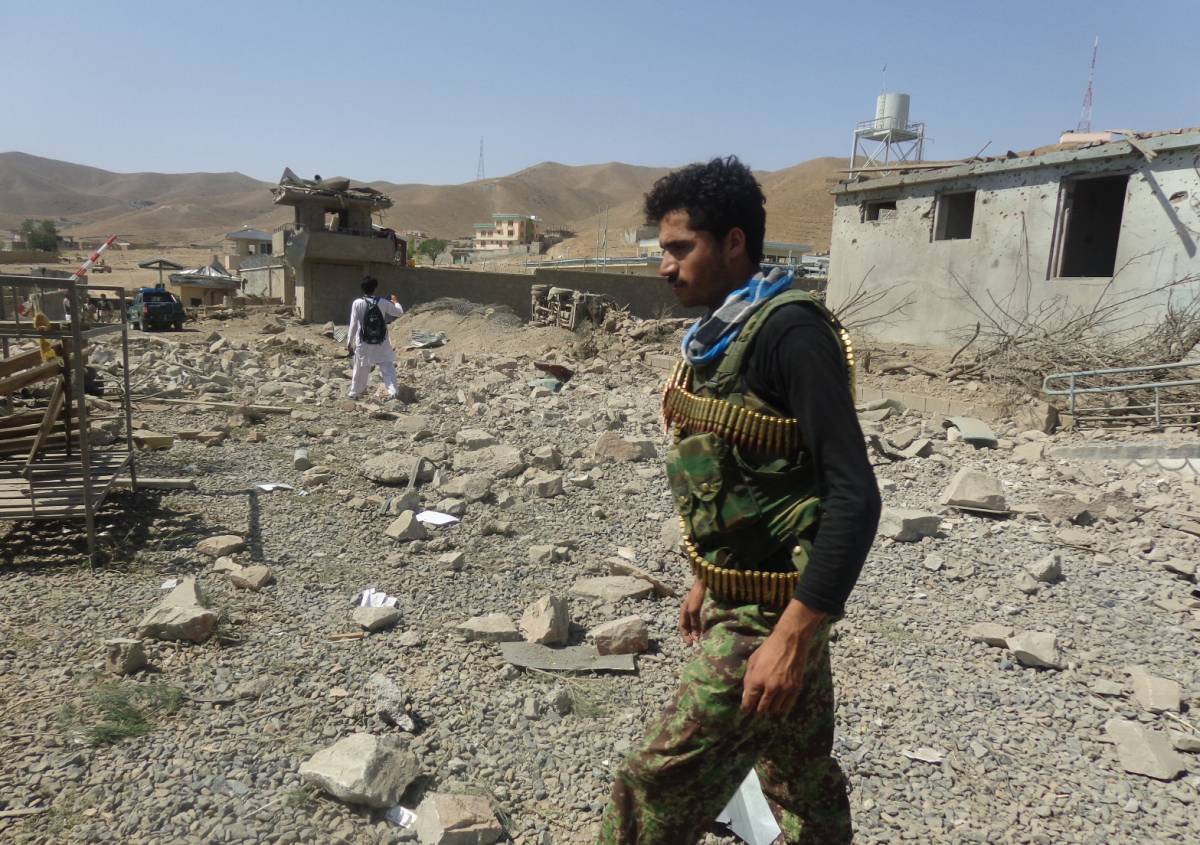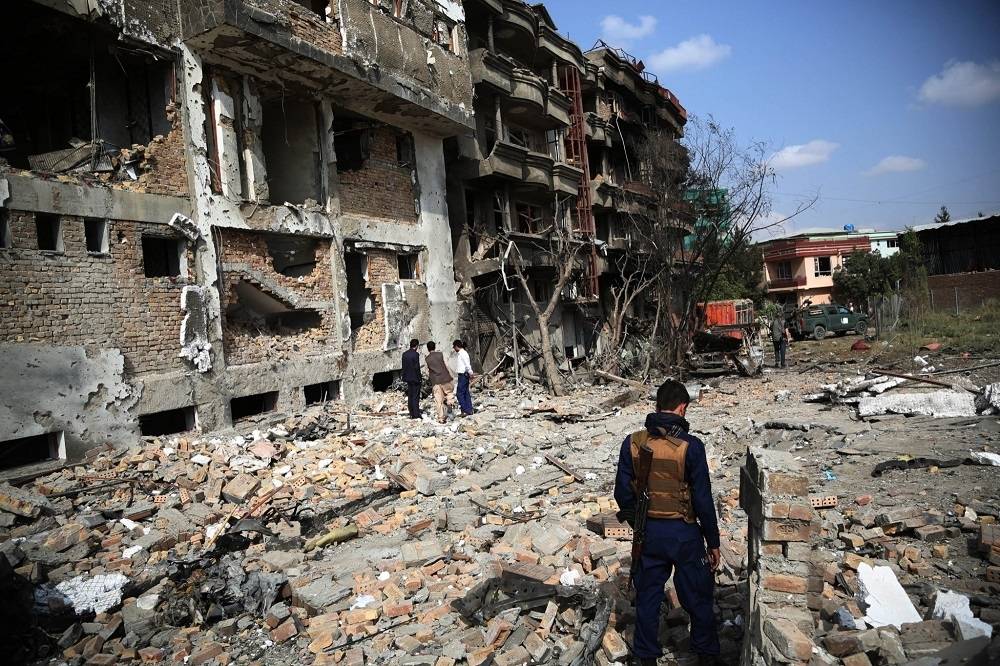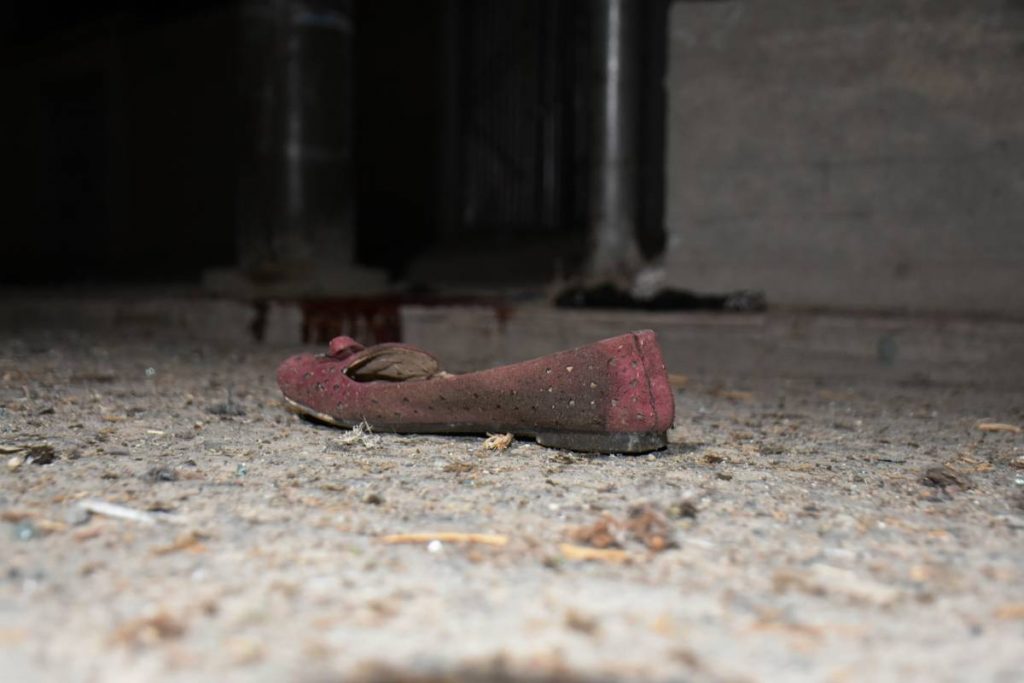India took over the presidency of the Council, which rotates alphabetically every month, from France and will hand off to Ireland next month, reports Arul Louis
India took over the presidency of the Security Council on Sunday with a pledge to work for entire humanity while bringing a focus to the challenges of terrorism.
Prime Minister Narendra Modi, in a video message on India’s presidency, said: “We must think of the entire humanity and not only of those who are on our side of the border. Humanity, as a whole, must be at the centre of our thinking and action.”
External Affairs Minister S. Jaishankar said that, at the Council: “India will keep the international spotlight firmly focused on the task of combatting terrorism, the pandemic and climate change, which are global challenges that transcend national boundaries.”
India’s Permanent Representative T.S. Tirumurti will preside over the Council this month in a chamber where the iconic painting of a rising Phoenix, symbolising the UN’s endeavour to bring the world out of the chaos of war, looms over the horseshoe table for the 15 national representatives.
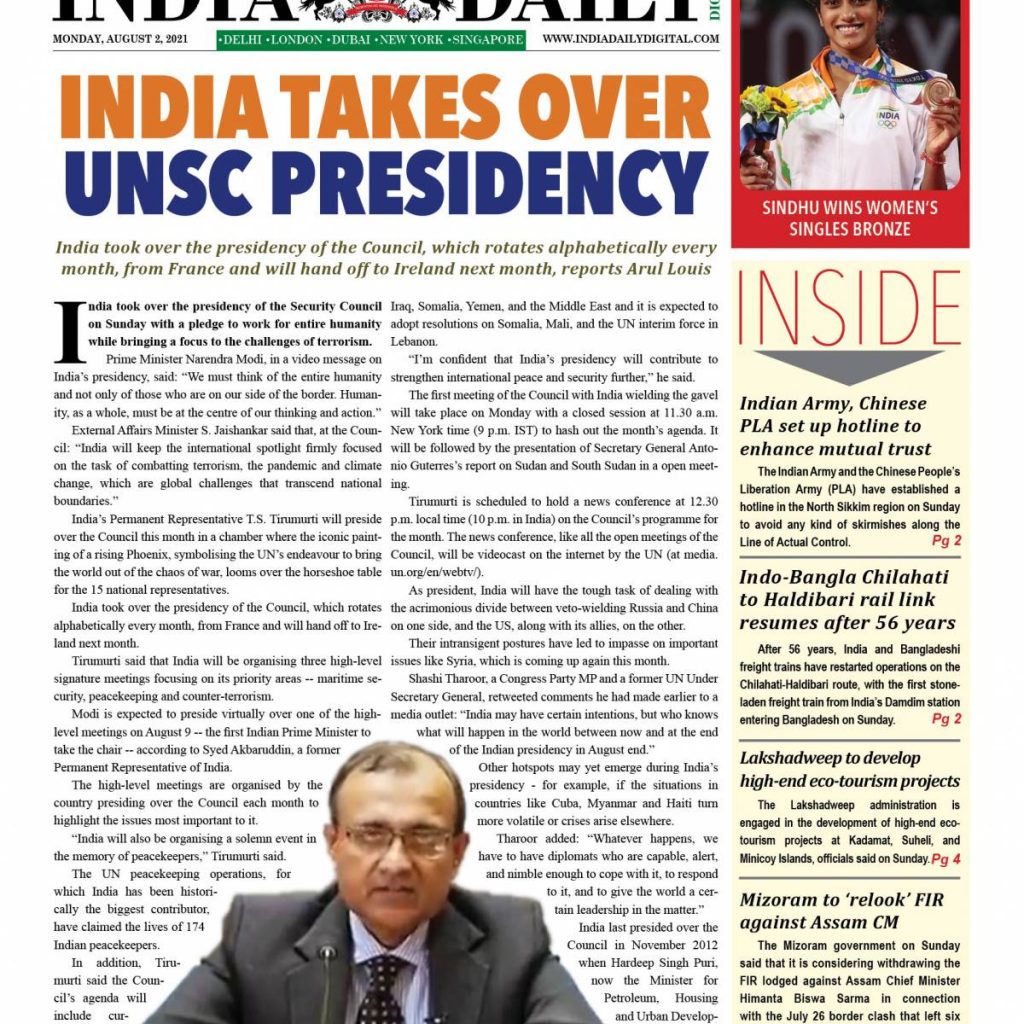
India took over the presidency of the Council, which rotates alphabetically every month, from France and will hand off to Ireland next month.
Tirumurti said that India will be organising three high-level signature meetings focusing on its priority areas — maritime security, peacekeeping and counter-terrorism.
Modi is expected to preside virtually over one of the high-level meetings on August 9 — the first Indian Prime Minister to take the chair — according to Syed Akbaruddin, a former Permanent Representative of India.
The high-level meetings are organised by the country presiding over the Council each month to highlight the issues most important to it.
“India will also be organising a solemn event in the memory of peacekeepers,” Tirumurti said.
The UN peacekeeping operations, for which India has been historically the biggest contributor, have claimed the lives of 174 Indian peacekeepers.
In addition, Tirumurti said the Council’s agenda will include current global hotspots Syria, Iraq, Somalia, Yemen, and the Middle East and it is expected to adopt resolutions on Somalia, Mali, and the UN interim force in Lebanon.
“I’m confident that India’s presidency will contribute to strengthen international peace and security further,” he said.
The first meeting of the Council with India wielding the gavel will take place on Monday with a closed session at 11.30 a.m. New York time (9 p.m. IST) to hash out the month’s agenda. It will be followed by the presentation of Secretary General Antonio Guterres’s report on Sudan and South Sudan in a open meeting.
Tirumurti is scheduled to hold a news conference at 12.30 p.m. local time (10 p.m. in India) on the Council’s programme for the month. The news conference, like all the open meetings of the Council, will be videocast on the internet by the UN (at media.un.org/en/webtv/).
As president, India will have the tough task of dealing with the acrimonious divide between veto-wielding Russia and China on one side, and the US, along with its allies, on the other.
Their intransigent postures have led to impasse on important issues like Syria, which is coming up again this month.
Shashi Tharoor, a Congress Party MP and a former UN Under Secretary General, retweeted comments he had made earlier to a media outlet: “India may have certain intentions, but who knows what will happen in the world between now and at the end of the Indian presidency in August end.”
Other hotspots may yet emerge during India’s presidency – for example, if the situations in countries like Cuba, Myanmar and Haiti turn more volatile or crises arise elsewhere.
Tharoor added: “Whatever happens, we have to have diplomats who are capable, alert, and nimble enough to cope with it, to respond to it, and to give the world a certain leadership in the matter.”
India last presided over the Council in November 2012 when Hardeep Singh Puri, now the Minister for Petroleum, Housing and Urban Development, was India’s Permanent Representative.
Recalling in a tweet his tenure as president, Puri pointed to the difficulty of leading a permanent member-dominated Council: “Ten years ago this day, India had last assumed presidency of the UNSC. I was privileged to preside over the horseshoe. We specifically cautioned against ‘use of force’ in Libya & failure to act in Syria.”
On the challenges of leading a fractured Council where the five permanent members wield supreme power through their vetoes, Foreign Secretary Harsh Vardhan Shringla said: “We’ve always endeavoured to be a voice of reason and understanding, a voice of the underrepresented developing world, a bridge-builder for narrowing the divides and for fostering consensus.”
The External Affairs Ministry said in a tweet that India will be guided on the Council by “5S” principles — ‘samman (respect), samvaad (dialogue), sahyog (cooperation), shanti (peace) and samriddhi (prosperity)”.
Introducing a note of realism in the midst of celebratory statements and social media posts, Tharoor said in one of his retweets, “Assumption of the UNSC Presidency is a routine thing; it goes in alphabetical order and this month, it’s India’s turn.”
ALSO READ-India lauds UAE’s inclusion in UNSC
READ MORE-Tirumurti meets UNGA’s Bozkir ahead of India assuming UNSC presidency

